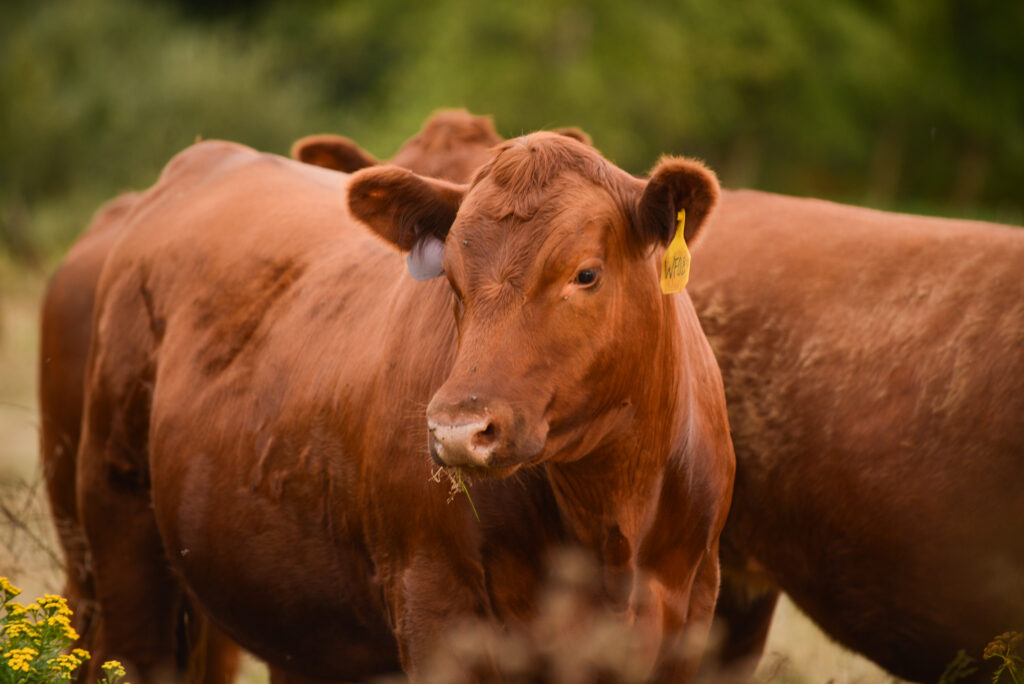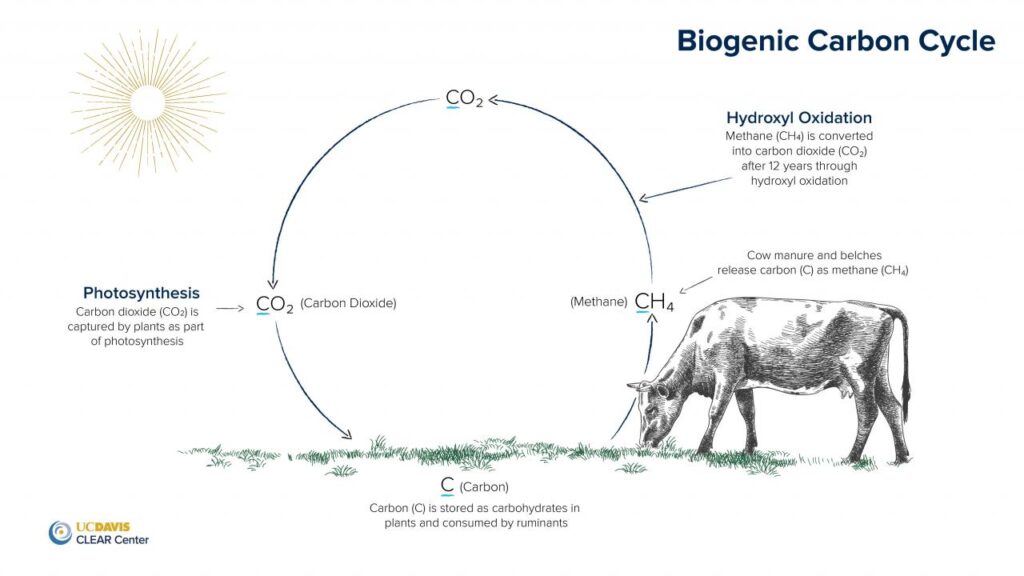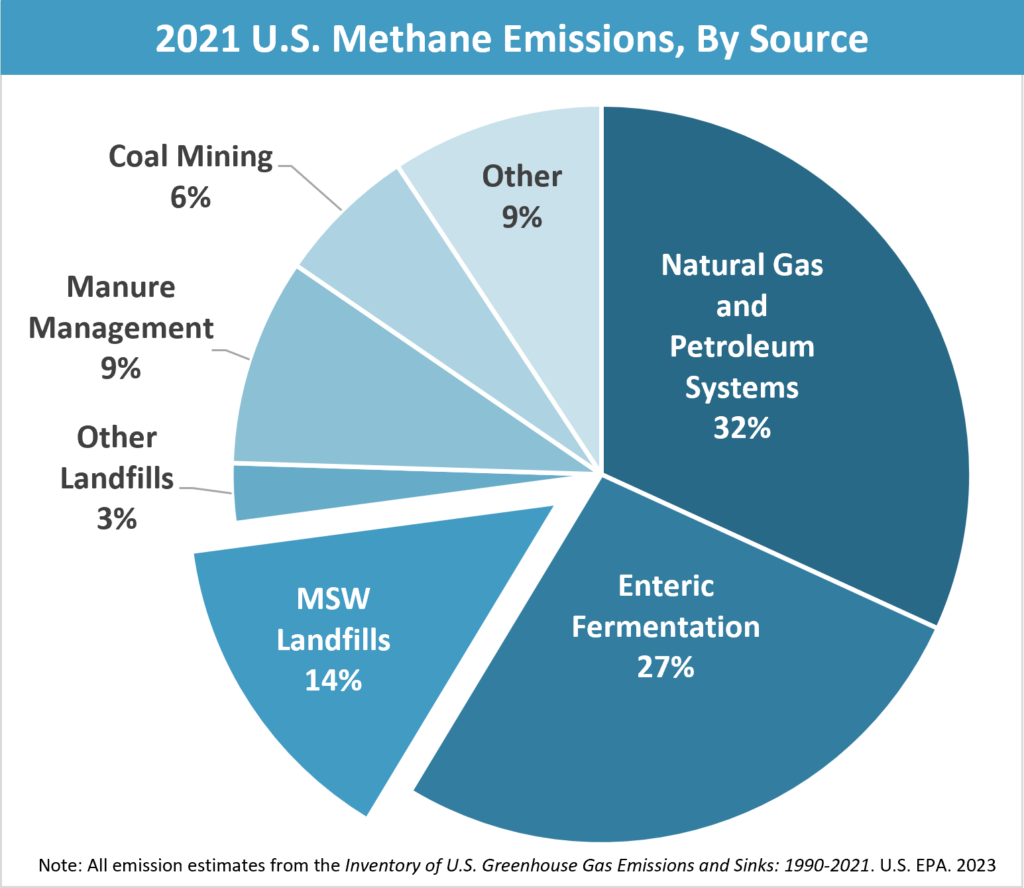
I’ll say it right out of the gate, this is a hot button topic. Time and time again, across social media, blogs, news sites, you name it, I’ve seen it covered from all different angles though there’s usually one common denominator. So many of these sources use exaggerative language or headlines that are meant to shock and frankly, get clicks, that I can’t help but feel like the facts are getting buried. So let’s unpack it a little shall we?
Before attempting to determine whether or not red meat is bad for the environment, you first have to understand a little bit about greenhouse gas emissions, which is at the center of all this. When it comes to cattle the focus often falls to cow burps (yes, really) and their role in what’s called the biogenic carbon cycle.

In a nutshell, plants capture carbon dioxide as part of photosynthesis and they store carbon in the form of carbohydrates. Side note, this is why maintaining soil health is a crucial part of regenerative agriculture! As the cows eat the grass and it makes its way through their digestive systems, carbon and methane is released in the form of manure and yes, burps. Then the methane is eventually converted back into carbon dioxide and the cycle repeats itself. Methane and carbon dioxide are considered to be greenhouse gases, a term you’ve likely heard before. While the carbon dioxide is absorbed by plants as part of the carbon cycle, methane is not. This over production of methane that lingers in the atmosphere is what contributes to additional warming, what people are often referring to when they mention global warming.

When it comes to these methane emissions the finger often gets pointed directly at the agriculture sector. But it’s important to look at the bigger picture. In this pie chart enteric fermentation refers to the digestive processes of livestock and it also notes manure management at 9%. So together, in 2021 livestock accounted for 36% of the methane emissions. But natural gas and petroleum systems plus landfills and coal mining account for 52%. This isn’t to say that livestock have zero impact. To claim that would simply be incorrect. But the blame can’t be placed squarely upon them either.
There is also the impact of the machinery and various modes of transportation that are required to process the meat and ship it across the country that have to be considered. Again, these aren’t to be counted out but I think the point I’m trying to get across overall is that there are so many factors to consider here. And really, I’m only scratching the surface but if I was to cover it all here this blog post would turn into a book!
So, let’s come back to the question at hand. Is red meat bad for the environment? Yes, cattle and other livestock arguably make an impact when it comes to greenhouse gases. But I think what’s important to recognize is that there is a lot more at play here than just cow burps and poop. The work we and many other farmers and ranchers do to practice regenerative agriculture and increase carbon storage, build up soil health and prevent erosion goes a long way to helping address our role in contributing to greenhouse gases. Supporting farmers and ranchers who do their work with sustainability is a great way to help further these efforts.
I think about this topica lot. It is important to see the whole picture. Organic farms are necessary for helping us all maintain our health and the health of the children. Cattle us maintain open space and healthy soils. Thank you for telling this story as you see it. The pie chart is helpful. Brianna, Is there any chance you could write your messages in a larger font? My eyes are changing and I am fighting all three diseases. I suppose you have a good reason for using this font,I’m hoping you can enlarge it. You send out important messages
. I am eager to join you on the Farm on the Ninth of September. I hope we can talk together about our food. It is hard for us to change our habits and diets but the fact that you have this farm to share your knowledge with the community give me hope. Widnor Farms is a great resource! I hope to keep my grandchildren in your farm school classes. And keep them small so they can participate . It is rare for children to have hands on experiences with animals. We want to raise a few chickens. It has been a child’s request for years. Mara will be 11 in January and Dominic will be 8. I think we need encouragement to start . Maybe we could talk to you both about that. . This will be an anniversary dinner for us ,and an early birthday for Tony! We Married in ’67,and he will be 80 on the 21st!
Ha, I can’t keep the grandchildren small, I mean small classes! And …the Cattle helpus to save open land and healthier soils. Gail
Oh climate change. Is this happening, sure but not at a fast rate as we are being told. So many things to take into consideration, and yet the blame right out the gate goes to cattle. Savannas, Forests, and all sorts of trees (Mangroves) world wide help keep the ground cool, and yet we have a need for housing, which needs lumber and land…. But this seems to not be mentioned much.
Thank you for being vulnerable.